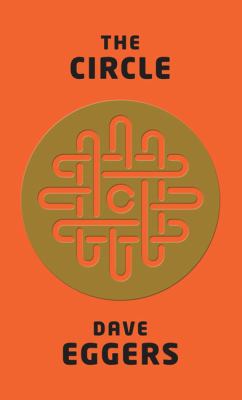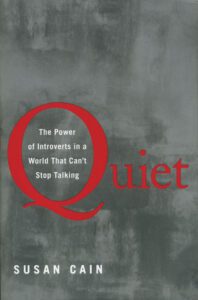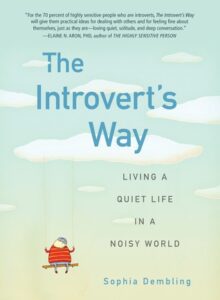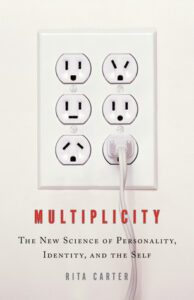Title: Quiet
Author: Susan Cain
Page Count: 352 pages
Genre: Non-Fiction
Tone: Thought-provoking, Reflective, Accessible
Summary from publisher:
Passionately argued, impressively researched, and filled with indelible stories of real people, Quiet shows how dramatically we undervalue introverts, and how much we lose in doing so. Taking the reader on a journey from Dale Carnegie’s birthplace to Harvard Business School, from a Tony Robbins seminar to an evangelical megachurch, Susan Cain charts the rise of the Extrovert Ideal in the twentieth century and explores its far-reaching effects.
SPOILER WARNING:
These book discussion questions are highly detailed and will ruin plot points if you have not read the book.
Questions composed by MPPL Staff
The Library is happy to share these original questions for your use. If reproducing, please credit with the following statement: 2015 Mount Prospect Public Library. All rights reserved. Used with Permission.
1. Quiet has had a lot of popularity and has been on numerous bestseller lists, including the NYT bestseller list for sixteen weeks. Why do you think Quiet has been a bestseller of this magnitude?
2. How did your perception of introversion and extroversion change or not change after reading Quiet?
3. Why do you think Western society evolved from a Culture of Character to a Culture of Personality?
4. Is it better to have people perceive you as a “competent leader” or overlook your leadership?
5. Why do you think we’re more inclined to follow those who initiate action?
6. What are ways we can look past sparkly speaking skills on a group level? How about when you are speaking with an individual?
7. What studies or facts surprised you?
8. Cain uses a lot of anecdotes to back up her claims. Would you count anecdotes as a credible source?
9. How do you think Cain did writing a book on the strengths of introverts without discounting the value extroverts bring to society?
10. What are the advantages of being an introvert? What are the advantages of being an extrovert?
11. One of the anecdotes Cain shares is of a tax lawyer who had trouble performing speaking events with very short notice. She thought it spoke poorly of her skills and knowledge, but it turns out she needed more advance notice for speaking. Cain writes, “But once Esther understands herself, she can insist to her colleagues that they give her advance notice of any speaking events” (126). This is one example of one of the kinds of tweaks, Cain suggests introverts make for their success. How do we begin to understand ourselves, so we can make these kinds of tweaks in our own lives?
12. How realistic do you think those tweaks are that we might make in our daily life? How about in the tweaks Cain talks about in the workplace?
13. Cain shares a statement by a woman from Taiwan who attended graduate school at UCLA, “Oh in the U.S., as soon as you start talking, you’re fine.” How does this statement ring true in the U.S.? How does it differ? Are there situations when this could be of benefit or of detriment?
14. There is a part of the book where Cain talks about fixed and free personality traits, basically saying that there are some personality traits that we are not stuck with having, and there is more flexibility in our personalities. She asks the question, “But if we’re capable of such flexibility, does it even make sense to chart the differences between introverts and extroverts?” (206) How would you answer that question?
15. What lessons did you glean from Quiet about interacting with the people around you, whether you’re an extrovert, introvert, or ambivert?
16. What are ways you can modify your behavior to better connect with introverts? How about extroverts?
17. Do you think introverts or extroverts tend to use the internet to communicate more, whether it be email or social networks like Facebook?
18. Who wouldn’t like this book? Who would disagree with it?
19. This book was divided in four different parts discussing essentially the workplace, the biology of introversion, Western culture and other cultures, and finally relating to others. What section or sections did you find most useful or interesting?
20. Do you think Quiet will have any lasting power? It’s popular now, but will it still be popular/enlightening/necessary in ten years from now? How about twenty? Or forty?
21. Cain is advocating for the Quiet Revolution in which we go about in life paying more attention to introverts. What would be risked if we pay more attention to introversion? What would be gained?
22. Do you see the emphasis on groups appearing in places other than work or school?
23. Do you trust Susan Cain as the author? Why or why not?
24. Do you have any suggestions of interesting psychology/science nonfiction books?
Other Resources
- Discussion Questions on author’s website
- Susan Cain’s TED Talk
- Networking for Introverts (Video)
- The Accidental Creative Podcast with Susan Cain
If you liked Quiet, try...
- The Introvert’s Way by Sophia Dembling
- The Circle by Dave Eggers
- Multiplicity by Rita Carter





